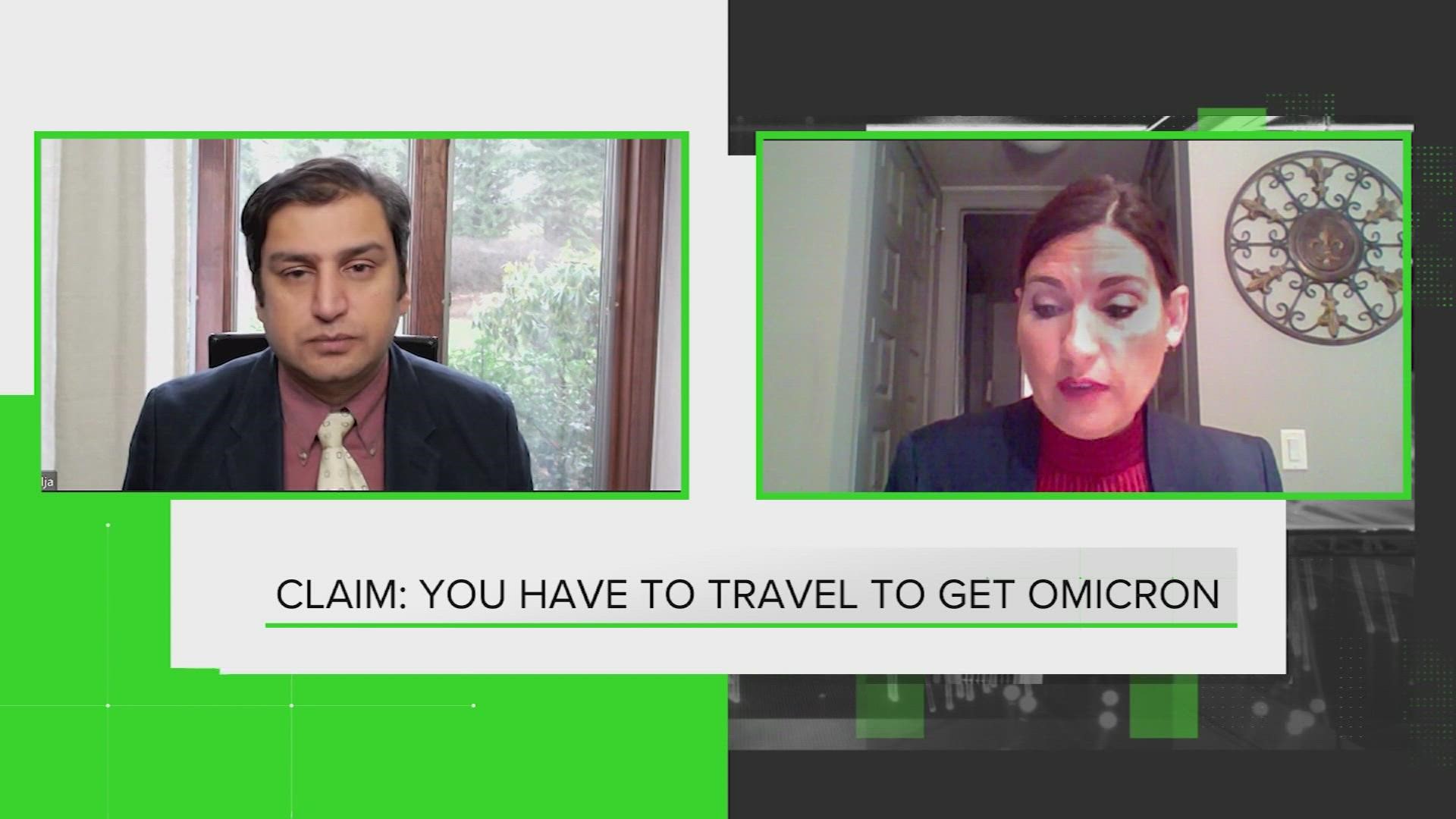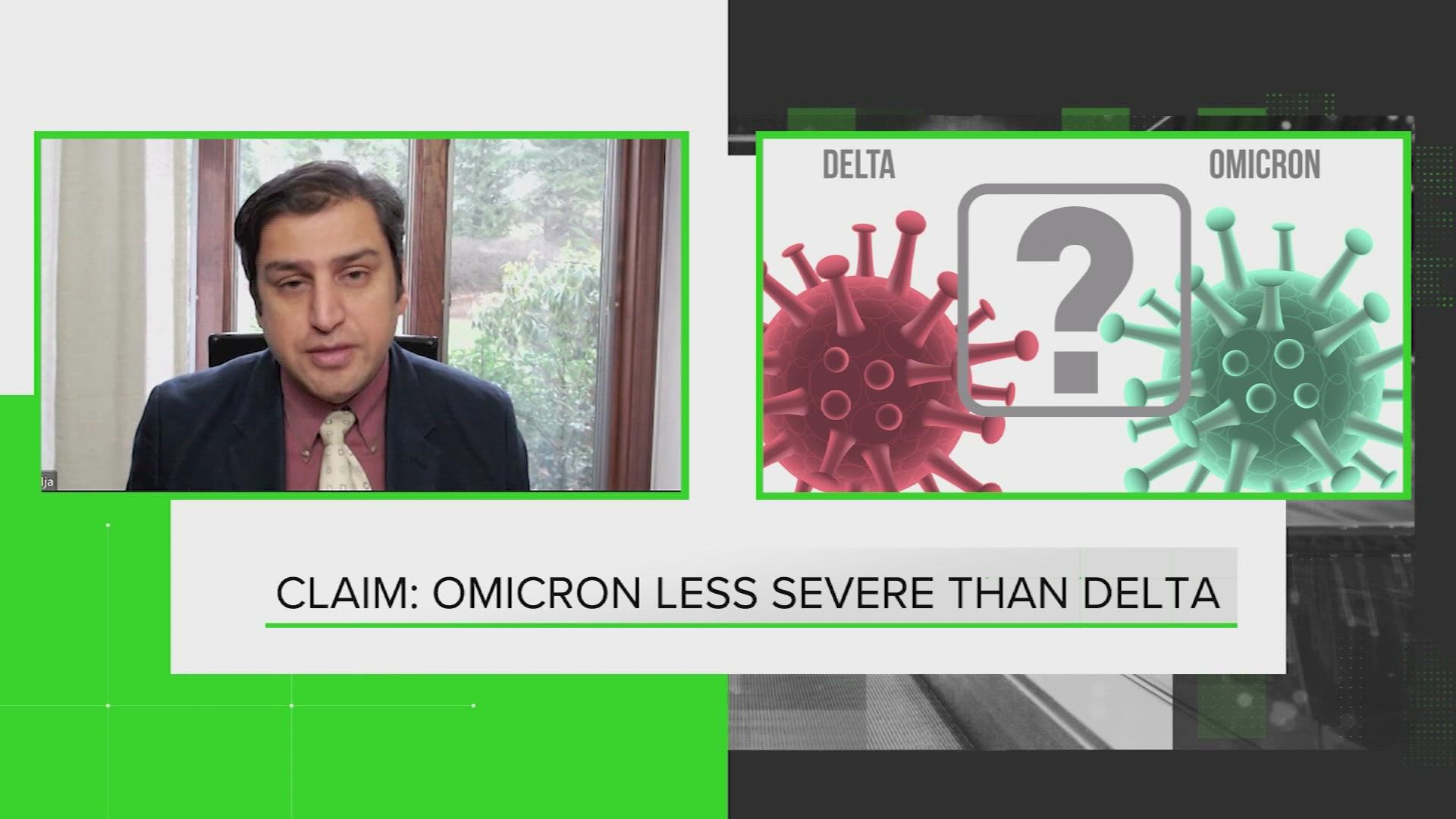HOUSTON — The omicron variant of COVID-19 is so new, sometimes it can be hard to tell whether what we see on social media is true or false. The Verify team is making sure you have the facts. We took some of the online claims to Dr. Amesh Adalja, Senior Scholar at Johns Hopkins Center for Health Security.
CLAIM: People diagnosed with the omicron variant in the U.S. likely contracted it while traveling abroad.
False. Dr. Adalja said: “There have been cases that have been linked to travel to South Africa and other countries. However, we do know that there is community spread going on. For example, in New York State, there's been community spread there, likely community spread going on in Texas. So, you don't have to travel to get the omicron variant. You can get it right at home.”
CLAIM: The omicron variant has multiple mutations.
True. “Dr. Adalja said: “The omicron variant has a cluster of mutations on its spike protein, more than what we've seen with other variants."
CLAIM: The current COVID-19 vaccines won't work against the omicron variant.
False. Dr. Adalja said: “It's important to remember that vaccines are not an on and off switch. It's not all or none. Even if a vaccine is not able to prevent every infection, they are going to work at preventing what matters: serious disease, hospitalization, and death. That's what we're seeing in the early reports from South Africa. We're also seeing that with the cases that have been diagnosed in the U.S., that the vaccinated people are tending not to have severe disease, meaning the vaccine is protecting them to some degree. It’s not always going to protect you from infection. It's the severe consequences of infection, which is what the vaccines were designed to do.”
PART 1: Johns Hopkins doctor answers more omicron questions
CLAIM: The COVID-19 omicron variant is so new, it is likely that in some cases, it won't show up on COVID-19 tests.
False. Dr. Adalja said: “The tests don't actually look for the variant, the tests just look to see if you're positive for COVID 19. So, all of our tests should be able to pick up the fact that you're positive for COVID-19.”
CLAIM: Current monoclonal antibody treatments will not work for people infected with the omicron variant.
False. Dr. Adalja said: “It's important to remember that there are three different monoclonal antibody products available in the United States. Two of them, the Regeneron Eli Lilly cocktails may not work very well with your omicron variant, which is predicted based on the mutations and the experience with other variants like beta and gamma. However, there is a third monoclonal antibody made by GlaxoSmithKline or GSK, which is expected to be effective against the variant because it targets a different part of the spike protein.”
CLAIM: If you test positive for COVID-19, you should isolate for ten days regardless of the variant.
True. Dr. Adalja said: “If you're positive for COVID-19, the recommendation is that you self-isolate for ten days, irrespective of whether it's caused by delta, another variant or omicron."
Click here for more information Dr. Amesh Adalja.
WATCH: More stories about COVID-19


